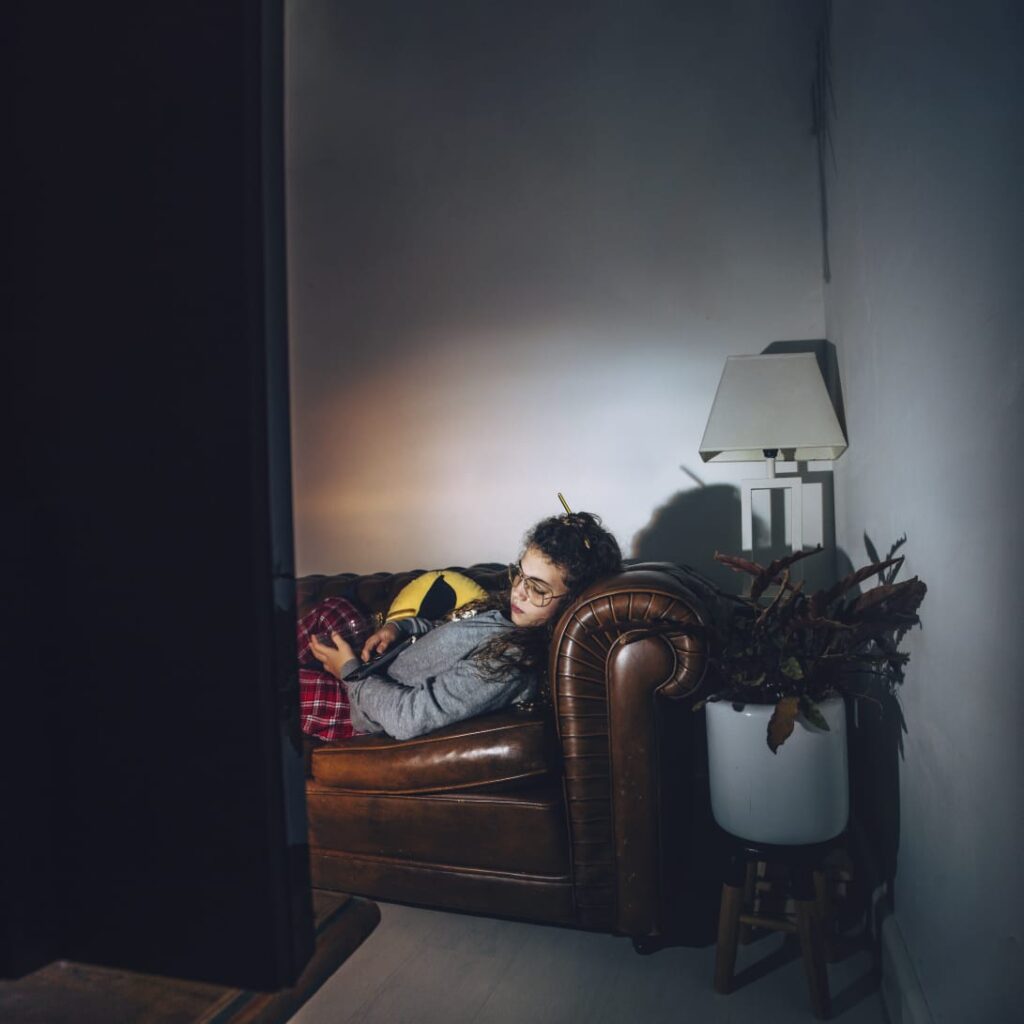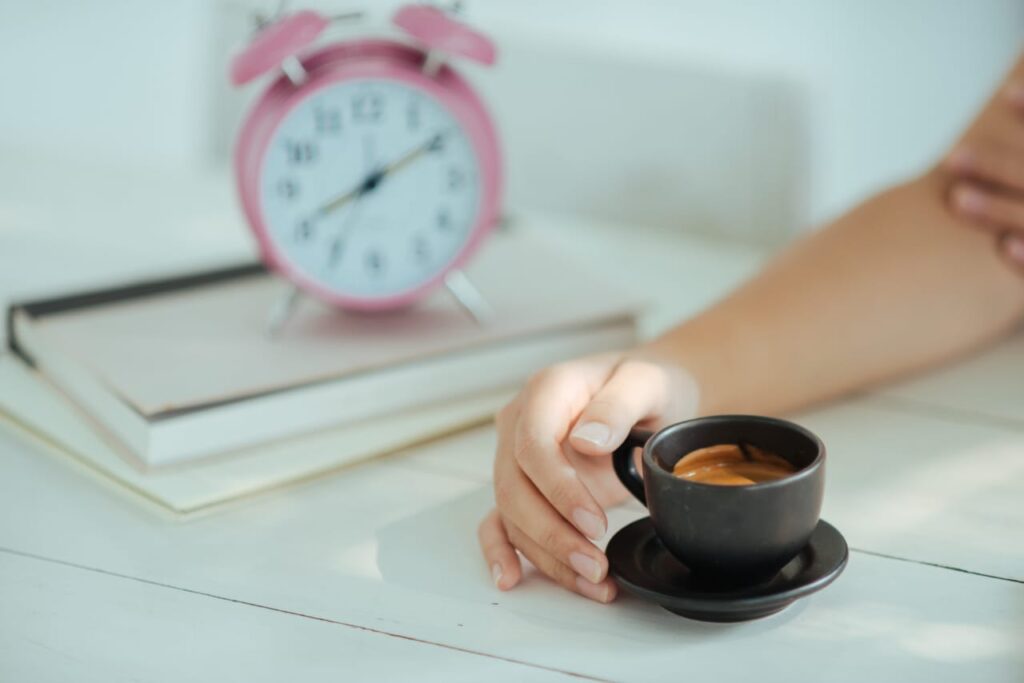Introduction
When the days grow shorter and daylight becomes scarce, it can have a significant impact on our mood, energy levels, and productivity. Understanding how to deal with less daylight can make this time of year more manageable. In this article, we’ll explore practical strategies to help you stay bright and upbeat despite the dwindling daylight.

Table of Contents
1. Embrace Light Therapy
Light therapy involves using a special light box that mimics natural sunlight. This technique is especially useful during the winter months or in areas where daylight is limited. The bright light helps regulate your body’s internal clock and can boost your mood and now will know how to deal with less daylight.
How to Use a Light Therapy Box
To get the most out of light therapy:
- Choose the Right Light Box: Look for a box that provides 10,000 lux of light, which is equivalent to natural daylight.
- Timing Matters: Use the light box in the morning, ideally within the first hour after waking up. This helps reset your circadian rhythm.

2. Create a Bright Indoor Environment
Maximize Natural Light
Arrange your living and working spaces to let in as much natural light as possible:
- Open Curtains and Blinds: Keep them open during daylight hours.
- Use Mirrors: Mirrors can reflect light around the room, making the space feel brighter.
Use Artificial Lighting Wisely
When natural light isn’t available:
- Opt for Daylight Bulbs: These bulbs mimic the color temperature of natural sunlight.
- Layer Your Lighting: Combine ambient, task, and accent lighting to brighten up your space and it help you to understand how to deal with less daylight.

3. Stay Active and Exercise Regularly
Why Exercise Helps
Physical activity boosts your mood and energy levels. It raises endorphin production, which naturally elevates mood. Regular exercise also helps you maintain a healthy sleep pattern, which is crucial when daylight is limited.
Best Times to Exercise
Try to exercise during the day to take advantage of available daylight. If that’s not possible, opt for indoor activities or consider investing in a light therapy box for your workout area.

4. Maintain a Healthy Diet
Nutritional Boost
Eating a balanced diet can help you feel more energetic and improve your mood. Focus on foods rich in:
- Vitamin D: Found in fatty fish, fortified dairy products, and eggs.
- Vitamin B: Present in whole grains, meat, and legumes.
Stay Hydrated
Drinking plenty of water is essential for overall well-being. Dehydration can lead to fatigue and lower mood, so aim to drink at least 8 glasses of water a day, now you are aware how to deal with less daylight.

5. Practice Good Sleep Hygiene
Importance of Sleep
Quality sleep is crucial, especially when you’re dealing with less daylight. It helps your body recover and maintain energy levels.
Tips for Better Sleep
• Adhere to a Routine: Every day, go to bed and wake up at the same time.
• Establish a Calm and Relaxing Environment: Make sure your bedroom is cool, quiet, and dark.

6. Engage in Mindfulness and Self-Care
Mindfulness Practices
Mindfulness can help you manage stress and stay positive despite fewer daylight hours. Think about techniques such as writing, deep breathing, or meditation.
Self-Care Activities
Regular self-care can uplift your mood:
- Take Warm Baths: They can be relaxing and comforting.
- Engage in Hobbies: Doing activities you love can be a great mood booster, now you are aware how to deal with less daylight.

7. Stay Socially Connected
Importance of Social Interaction
Staying connected with friends and family can help combat feelings of isolation that may come with reduced daylight. Social interactions can provide emotional support and keep your spirits high, these are the ways how to deal with less daylight
Ways to Stay Connected
- Schedule Regular Meetups: Even virtual ones can make a big difference.
- Join Clubs or Groups: Participate in activities or groups that interest you.
Conclusion
Dealing with less daylight doesn’t have to be challenging. By incorporating light therapy, optimizing your indoor environment, staying active, eating well, and practicing self-care, you can maintain your mood and energy levels throughout the darker months. Remember, finding what works best for you is key to staying bright and positive despite the reduced daylight.
FAQs
1. What is the best time to use a light therapy box?
Use the light therapy box in the morning, ideally within the first hour after waking up.
2. what are the ways to increase natural light at home?
Open curtains and blinds during the day, and use mirrors to reflect light around the room.
3. What are some good foods to eat for better mood during less daylight?
Focus on foods rich in vitamin D and vitamin B, such as fatty fish, fortified dairy, whole grains, and legumes.
4. To stay hydrated, how much water should I drink?
Try to have eight glasses of water or more each day.
5. How can mindfulness help with dealing with less daylight?
Mindfulness practices can reduce stress and improve mood, helping you stay positive during darker months. These are the ways how to deal with less daylight.
Image by freepik.com
безопасная сделка аккаунтов платформа для покупки аккаунтов
аккаунты с балансом покупка аккаунтов
покупка аккаунтов профиль с подписчиками
безопасная сделка аккаунтов https://prodat-akkaunt-online.ru/
маркетплейс аккаунтов соцсетей https://kupit-akkaunt-top.ru/
продать аккаунт магазин аккаунтов
Sell Account Buy Account
Buy Account Secure Account Purchasing Platform
Profitable Account Sales Ready-Made Accounts for Sale
Account trading platform https://buyaccountsmarketplace.com/
Gaming account marketplace accountsmarketplacehub.com
Sell Pre-made Account Accounts marketplace
Account Trading Buy Account
Guaranteed Accounts Account market
Accounts for Sale Buy Account
Sell accounts Account Selling Service
Website for Selling Accounts Account Market
guaranteed accounts account buying platform
account market profitable account sales
database of accounts for sale database of accounts for sale
sell account accounts for sale
profitable account sales database of accounts for sale
purchase ready-made accounts buy accounts
profitable account sales social media account marketplace
account purchase account acquisition
purchase ready-made accounts ready-made accounts for sale
buy and sell accounts account catalog
online account store account selling service
account trading platform sell pre-made account
guaranteed accounts account marketplace
account catalog profitable account sales
account store find accounts for sale
account buying service social media account marketplace
verified accounts for sale purchase ready-made accounts
website for buying accounts ready-made accounts for sale
website for buying accounts account market
accounts for sale buy account
account purchase account market
find accounts for sale account trading
account exchange account catalog
account exchange sell accounts
buy and sell accounts verified accounts for sale
account marketplace buy account
account trading platform account market
account marketplace https://accounts-offer.org
account store https://accounts-marketplace.xyz/
website for selling accounts buy accounts
guaranteed accounts https://accounts-marketplace.live
account exchange service https://social-accounts-marketplace.xyz
buy account https://buy-accounts.space/
account buying service https://buy-accounts-shop.pro/
secure account sales account marketplace
secure account purchasing platform https://social-accounts-marketplace.live
accounts marketplace https://buy-accounts.live
gaming account marketplace https://accounts-marketplace.online
account store https://accounts-marketplace-best.pro/
биржа аккаунтов akkaunty-na-prodazhu.pro
купить аккаунт https://kupit-akkaunt.xyz/
покупка аккаунтов https://rynok-akkauntov.top
маркетплейс аккаунтов соцсетей akkaunt-magazin.online
продажа аккаунтов https://akkaunty-market.live
купить аккаунт https://kupit-akkaunty-market.xyz
продать аккаунт akkaunty-optom.live
биржа аккаунтов https://online-akkaunty-magazin.xyz/
биржа аккаунтов магазины аккаунтов
маркетплейс аккаунтов купить аккаунт
buy facebook ad account facebook ad account buy
buy facebook account https://buy-ad-accounts.click
buy facebook old accounts https://buy-ad-account.top
facebook ad account buy buy facebook accounts
Бухгалтерия по цене двух чашек кофе: за кого нас держат?
buy ad account facebook facebook ads accounts
fb account for sale buy facebook ads account
buy facebook account https://ad-account-for-sale.top
buy facebook ad account https://buy-ad-account.click
Thank you championing sharing this!
https://hentai0day.com
It’s ever after inviting to finance unalike perspectives on this topic.
I esteem the effort and itemize rest into this register – it provides valuable insights and definitely gives me something to ponder about.
Looking insolent to more theme like this!
buying facebook accounts https://ad-accounts-for-sale.work
buy google ad threshold account https://buy-ads-account.top
google ads accounts https://buy-ads-accounts.click
buying fb accounts https://buy-accounts.click
“What are your thoughts on a diet based solely on foods that are the same color as your skin? Some argue it’s the key to long life and vitality. Would you give it a try?” On our website, we offer contemporary and the best IT solutions an eye to your house] kodx.uk
poison ivy and prednisone prednisone dosage for arthritis prednisone coupons prednisone and high blood pressure what is another name for prednisone
google ads agency account buy https://ads-account-for-sale.top
buy google ads invoice account https://ads-account-buy.work/
https://t.me/Asiapsi
google ads account for sale https://buy-ads-invoice-account.top/
google ads account for sale buy old google ads account
buy google ads accounts https://buy-ads-agency-account.top/
buy google ads threshold accounts https://sell-ads-account.click
google ads account buy https://buy-verified-ads-account.work/
verified bm https://buy-business-manager.org/
buy google ads threshold accounts https://ads-agency-account-buy.click/
On our website, we tender contemporary and the wealthiest IT solutions for your establishment] kodx.uk
buy facebook bm account https://buy-business-manager-acc.org
buy verified business manager facebook https://buy-bm-account.org/
buy facebook business manager verified https://buy-verified-business-manager-account.org
verified facebook business manager for sale buy verified facebook business manager account
facebook bm account buy business-manager-for-sale.org
buy business manager account buy-business-manager-verified.org
buy facebook business manager accounts https://buy-bm.org
facebook bm buy https://verified-business-manager-for-sale.org/
Nulls Brawl
deuxieme prise stromectol stromectol covid posologie stromectol 3mg tabletten stromectol et tenia ivermectin generic stromectol 3mg tablet 10 40 tablet
facebook business manager buy buy-business-manager-accounts.org
buy tiktok business account https://buy-tiktok-ads-account.org
buy tiktok ad account https://tiktok-ads-account-buy.org
Сопровождение хостинг-услуги в Санкт-петербурге — Escort Piter https://escort-piter.com/
buy tiktok ad account https://tiktok-ads-account-for-sale.org
tiktok ads agency account https://tiktok-agency-account-for-sale.org
buy tiktok ads https://buy-tiktok-ad-account.org
Ремонт телефонов в Кирове. +79229564040 – Сервисный центр Мобиопт
buy tiktok ad account https://buy-tiktok-business-account.org
tiktok ads agency account https://buy-tiktok-ads.org
tiktok agency account for sale https://tiktok-ads-agency-account.org
Antipublic]net – Find what google can’t find
Great in data leak: With over 20 billion collected passwords
Super fast search speed: Allows easy and super fast search of any user or domain.
Many options for buy, many discout. Just 2$ to experience all functions, Allows downloading clean data from your query.
Referral refferal and earn: https://Antipublic.net/referral?code=REF4YIJHD8R
Строительство трехэтажного дома в Москве
Как найти рабочую Кракен ссылку?
Найти рабочую Кракен ссылку может быть непросто из-за большого количества мошенников, предлагающих поддельные сайты. Чтобы найти актуальные ссылки, следуйте этим советам:
• Пользуйтесь только проверенными источниками. Это могут быть популярные форумы или сайты, специализирующиеся на даркнет-площадках.
• Не доверяйте случайным ссылкам из мессенджеров или социальных сетей — они могут быть опасными.
• Ищите актуальные зеркала через сайты-сообщества, посвящённые даркнету.
ОФИЦИАЛЬНАЯ ССЫЛКА на Кракен сайт:
http://kra-zerkalo.online
Это только пример и не является реальной ссылкой.
Как зайти на Кракен сайт через Tor?
Для безопасного входа на Кракен сайт следуйте этим шагам:
1. Получите рабочую Кракен ссылку:
Найдите актуальную ссылку формата kr32.run из проверенных источников.
2. Откройте ссылку в Tor:
Запустите браузер Tor, вставьте ссылку в адресную строку и нажмите Enter.
Важно: убедитесь, что ссылка безопасна. Проверяйте её на форумах и в сообществах с хорошей репутацией.
Ключевые слова: Кракен Даркнет, Кракен ссылка, Кракен сайт, Кракен Онион.
Приветствую, уважаемые пользователи!
Хочу сообщить своим впечатлениями, связанным с бронированием машины на заказ. Недавно прибыл в область и сталкивался с вопросом: как быстро найти надёжное такси?
Через какие сервисы вы обычно оформляете машины? Через онлайн-ресурсы или по номеру? Есть ли среди вас те, кто выбирает установленную стоимость?
Мне необходимо знать: какие компании вы предлагаете для заказа такси? Особенно актуально это для вокзала — хочется избежать опозданий с подачей шофёра.
Буду рад прочесть ваши мнения, реальные случаи. Возможно, кто-то сталкивался с плохим обслуживанием и готов сообщить других?
Спасибо за любую советы!
https://flholod.ru/vodopad-dettifoss-islandiya/
Зовем зайти : остекление в Екатеринбурге панорамные окна о теплом и холодном остеклении объектов. пластиковое остекление .
Want better leads? SEO & SEA Marketing support brands to drive conversions through targeted Google Ads.
From content marketing to PPC campaigns, we tailor every solution to your goals.
We optimize every campaign for maximum ROI and visibility.
Our strategies are built to scale with your business.
Our campaigns are optimized for both search engines and users.
Our clients trust us for consistent performance and honest reporting.
Предлагаем ознакомиться : остекление в Екатеринбурге окна-екатеринбург.рф окно дверь цена о теплом и холодном остеклении объектов. остекление балконов и лоджий .
Работай комфортно и без ограничений! Тестируй прямо сейчас. proxyelite.kupit-proxy-ipv4.ru
you can try these out essaywriter
доставка цветов букет цветов с доставкой
Play at the Russian online Casino
https://vk.cc/cMlzC7
Свежие актуальные Самые свежие новости из мира спорта со всего мира. Результаты матчей, интервью, аналитика, расписание игр и обзоры соревнований. Будьте в курсе главных событий каждый день!
buy balloons dubai flowers and balloons dubai
resume data engineer design engineer resume example